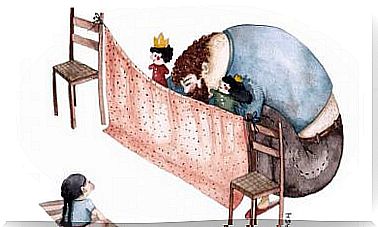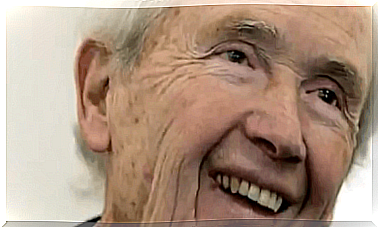9 Physical Effects Of Worry

The physical effects of worry can sometimes be mistaken for common ailments. The classic stomach pain, the burning in the neck or the headache that does not go away even with a paracetamol may be behind this psychological state. Who has not ever happened? They are very common situations, but the danger comes when that concern becomes chronic.
It is important to keep in mind that constant restlessness or daily anguish that does not go away is the basis of many mood disorders. Depression and anxiety have as a substrate all those thoughts loaded with negativity, fear and obsessive rumination.
Sometimes life comes to us with an excess of adversity. Nobody knows what destiny is going to bring us and more than once they like to put us to the test with a host of concatenated problems. However, it is important to maintain good control of all our mental processes. Pathological concern is a clear enemy to physical and mental health.

Physical Effects of Worry You Should Know About
The physical effects of worry are as diverse as they are bewildering. Although it is true that there are those who do not experience more than the recurring headache, many people end up developing psychosomatic disorders. The emotional intensity associated with chronic worry states can lead to sleep disorders, eating disorders, etc.
Research from Pennsylvania State University (United States) states that it is common to fall into very dangerous mental feedback loops. Worry intensifies negative valence emotions and these, in turn, have an impact on our body, our organism and its functions.
Next we will see what are the physical effects of worry.
1. Headaches, the hammer to the temples
Tension headaches are directly associated with states of worry and stress. All the emotional tension accumulated for hours, days or weeks ends up being translated into that throbbing pain in one or both parts of the head.
2. Back and neck pain, the physical effects of the most common concern
Muscle contractures are a classic when we overcome those times of anguish, restlessness and unresolved problems. The nerve structures in the spine tend to become inflamed and this results in back pain, tension in the neck or shoulders, etc.
3. The pressure in your chest, when you are short of breath
The origin of the pressure in the chest lies in the elevated level of cortisol and adrenaline in the blood. The parasympathetic nervous system becomes overactive and tachycardia appears, chest pressure and the sensation that we are short of breath at every moment.
4. Digestive disorders and the physical effects of worry
Heavy digestions, heartburn, discomfort, feeling full and even nausea … Both the stomach and the intestines make up structures closely linked to the brain. Every emotional state tends to alter your internal balance.
5. Hair loss
A study carried out by Drs Kerstin Foytzik and Petra Ark of the University of Hamburg points out something important. Chronic states of worry over time, those that lay the foundations for anxiety and stress, lead to hair loss.
Hormonal alterations mediate this loss of density which, most of the time, is limited to being something temporary.
6. Stress, worries and eczema
Another of the physical effects of worry has to do with the skin. At some time we will have noticed that in those times when we suffer greater stress, dryness appears, redness appears in some part of our body, including the face.
The skin becomes much more sensitive when we deal with emotions such as anxiety, stress, restlessness. .. So much so that it is possible to suffer from eczemas.
7. Hoarseness
When worries are constant and stress accompanies us for weeks or months, we can experience what is known as psychogenic dysphonia.
This phenomenon arises from the fact that the muscles of the vocal cords suffer small spasms that lead to aphonia or loss of voice. Something also temporary.

8. Sudden dizziness and the physical effects of worry
Dizziness is another of the physical effects of worry. The trigger is hyperventilation, which alters the oxygen level to the point of feeling dizzy or lightheaded.
9. The tremors
Trembling in the hands or arms, in an eyelid or simply feeling that the body is more clumsy than normal. Does this feeling sound familiar to you?
Chronic worry manifests itself in multiple ways, and many are disabling. These tremors also have their origin in that overactive parasympathetic system and in the effect of stress hormones.
To conclude, it is not good to neglect these indicators. When the body speaks, it is because the mind has been asking for help for a long time. Let’s be able to respond, let’s not leave what worries today for tomorrow and let’s give it a solution before falling into these eternal labyrinths of suffering.









